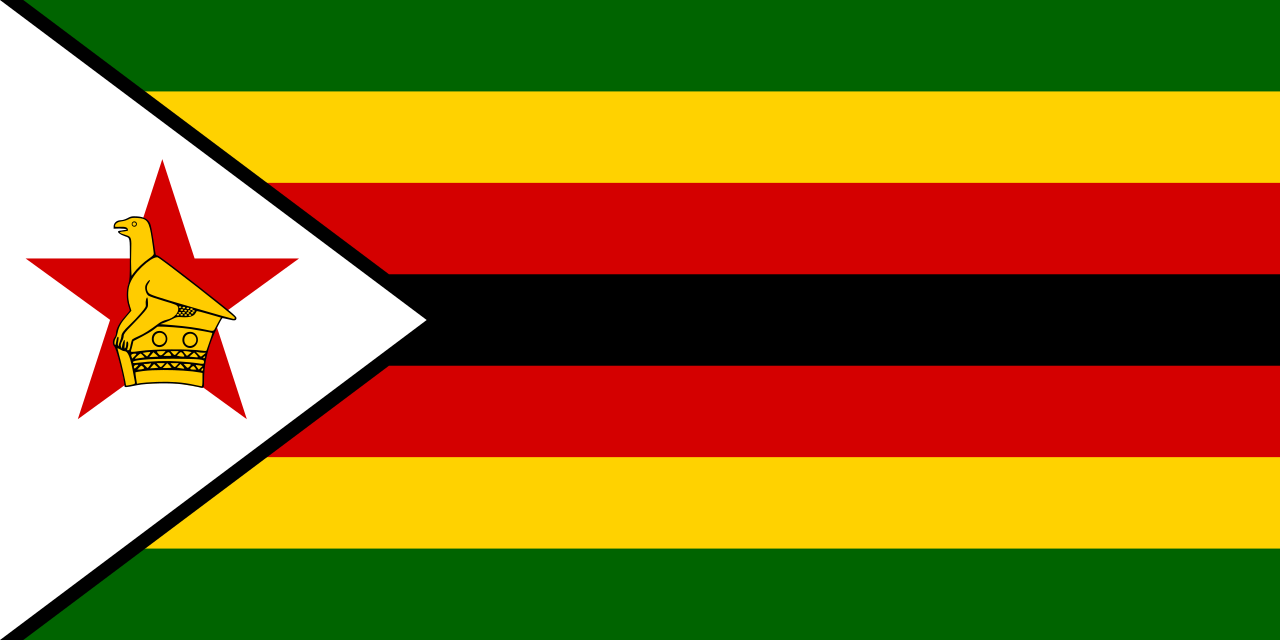The UK annexed Southern Rhodesia from the former British South Africa Company in 1923. A 1961 constitution was formulated that favored whites in power. In 1965 the government unilaterally declared its independence, but the UK did not recognize the act and demanded more complete voting rights for the black African majority in the country (then called Rhodesia). UN sanctions and a guerrilla uprising finally led to free elections in 1979 and independence (as Zimbabwe) in 1980. Robert MUGABE, the nation's first prime minister, has been the country's only ruler (as president since 1987) and has dominated the country's political system since independence. His chaotic land redistribution campaign, which began in 1997 and intensified after 2000, caused an exodus of white farmers, crippled the economy, and ushered in widespread shortages of basic commodities. Ignoring international condemnation, MUGABE rigged the 2002 presidential election to ensure his reelection.
In April 2005, the capital city of Harare embarked on Operation Restore Order, ostensibly an urban rationalization program, which resulted in the destruction of the homes or businesses of 700,000 mostly poor supporters of the opposition. MUGABE in June 2007 instituted price controls on all basic commodities causing panic buying and leaving store shelves empty for months. General elections held in March 2008 contained irregularities but still amounted to a censure of the ZANU-PF-led government with the opposition winning a majority of seats in parliament. Movement for Democratic Change - Tsvangirai opposition leader Morgan TSVANGIRAI won the most votes in the presidential poll, but not enough to win outright. In the lead up to a run-off election in June 2008, considerable violence against opposition party members led to the withdrawal of TSVANGIRAI from the ballot. Extensive evidence of violence and intimidation resulted in international condemnation of the process. Difficult negotiations over a power-sharing "government of national unity," in which MUGABE remained president and TSVANGIRAI became prime minister, were finally settled in February 2009, although the leaders failed to agree upon many key outstanding governmental issues. MUGABE was reelected president in June 2013 in balloting that was severely flawed and internationally condemned. As a prerequisite to holding the election, Zimbabwe enacted a new constitution by referendum, although many provisions in the new constitution have yet to be codified in law.
Zimbabwe is semi-presidential republic.
Source: CIA World Factbook
Members:
Resources
Displaying 26 - 30 of 59Agricultural and Rural Development Authority Act [Chapter 18:01].
This Act establishes the Agricultural and Rural Development Authority under section 3 as a body corporate. The operations of the Authority shall, subject to this Act, be controlled by a Board constituted under section 5. For the better exercise of its functions and powers the Board may establish one or more committees (sect. 12).
Regional, Town and Country Planning Act [Chapter 29:12].
This Act concerns land-use planning at regional level. The text of the Act consists of 75 sections and one Schedule.
Urban Councils Act 1984 [Cap. 29:15].
This Act makes provision with respect to local government in Zimbabwe and related matters such as cooperation between authorities. The Act, among other things, defines functions and powers of councils of local authorities, provides with respect their organization and to land vested in local authorities and establishes the Local Government Board. As for land, the Act regulates the expropriation of private land, alienation of council land, lease of land and reservation of land for state purposes.
Prevention of Discrimination Act [Chapter 8:16].
This Act makes provision with respect to prevention of discrimination based on race, origin, creed, gender, etc.The Act concerns, among other things, prevention of discrimination in regard to public premises, commodities, services and facilities, prevention of discrimination in regard to sale, lease or other disposal of any immovable property and prevention of discrimination in regard to granting of the financing of land transactions and other financing.
Magistrates Court Act [Chapter 7:10].
This Act makes provision for the establishment for regional and provincial courts by the Minister, defines jurisdiction of such courts and provides with respect to legal proceedings at such courts and related matters. Various aspects of the legal proceedings concern land or rights in land.
Amended by: Judicial Laws Amendment (Ease of Settling Commercial and Other Disputes) Act, 2017 (No. 7 of 2017). (2017)


